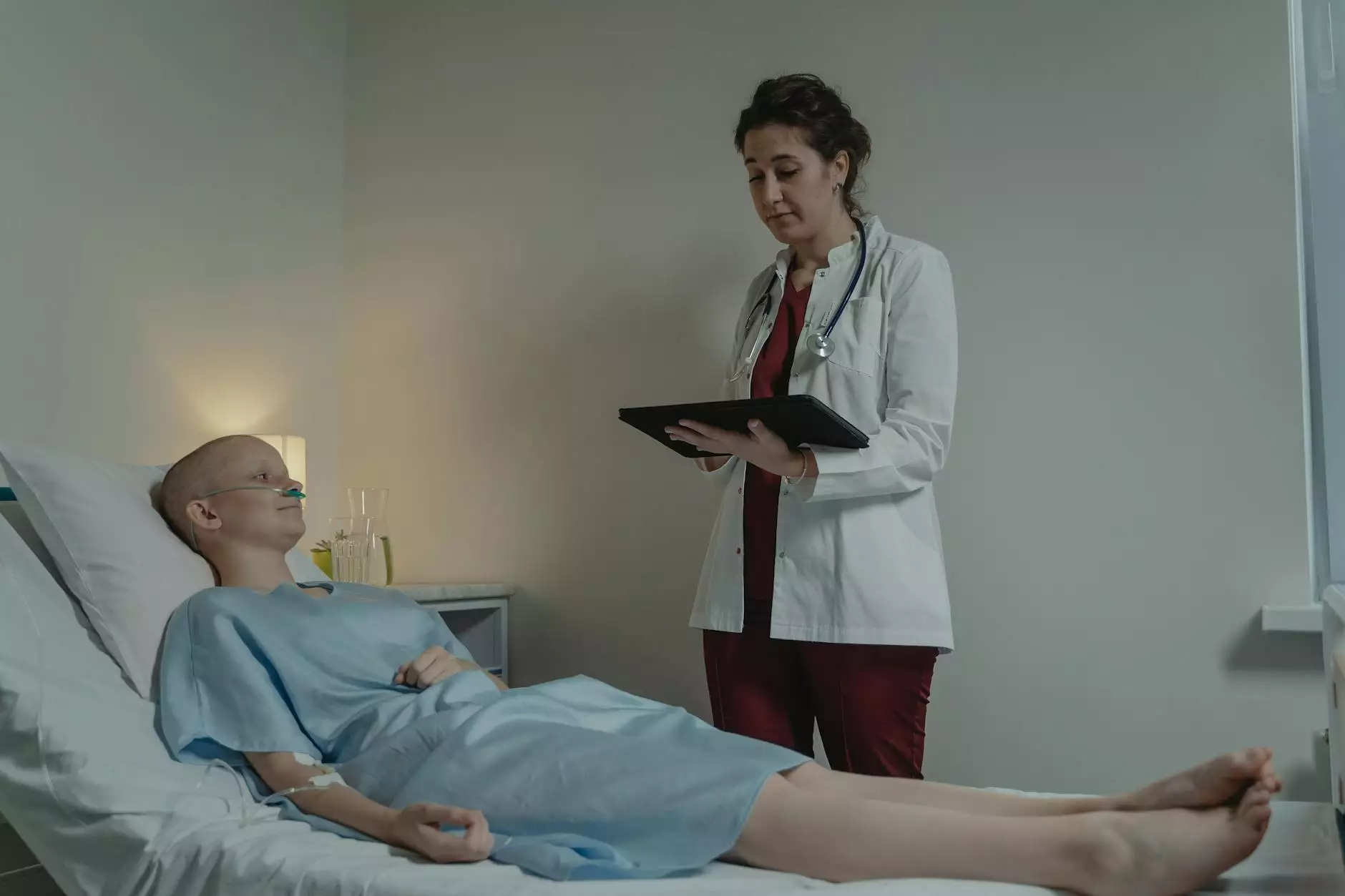Understanding Lung Cancer Procedures: A Comprehensive Guide

Lung cancer is one of the most significant health challenges faced globally. It is the leading cause of cancer-related deaths, making lung cancer procedures a crucial aspect of medical research and treatment. This article provides a thorough understanding of the various procedures involved in diagnosing and treating lung cancer, empowering patients and their families with knowledge and insights.
1. What is Lung Cancer?
Lung cancer occurs when cells in the lungs grow uncontrollably, leading to the formation of tumors. There are two primary types:
- Non-small cell lung cancer (NSCLC): This is the most common type, accounting for approximately 85% of cases.
- Small cell lung cancer (SCLC): This type grows more quickly and is often linked to smoking.
Understanding the type of lung cancer is essential for determining the most effective treatment and lung cancer procedures.
2. Importance of Early Detection
Early detection of lung cancer significantly increases the chances of successful treatment. The survival rates for lung cancer are much higher when the disease is diagnosed in its early stages. Regular screenings and an awareness of symptoms can lead to earlier interventions. Procedures like low-dose computerized tomography (CT) scans are pivotal in detecting lung cancer even in asymptomatic patients.
3. Key Lung Cancer Procedures
3.1 Diagnostic Procedures
Diagnosis is the first step in treating lung cancer. Several procedures are utilized to confirm the presence of cancer:
- Imaging Tests: X-rays, CT scans, and MRI scans help visualize the lungs and identify abnormalities.
- Biopsies: A biopsy involves taking a sample of lung tissue to examine for cancer cells. Different methods include needle biopsy, bronchoscopic biopsy, and surgical biopsy.
- Blood Tests: While no blood test can definitively diagnose lung cancer, they can provide important information about overall health and organ functioning.
3.2 Treatment Procedures
Once a diagnosis is made, a treatment plan is constructed, which may include several lung cancer procedures:
- Surgery: This is often the first line of treatment for localized lung cancer. Options include:
- Wedge Resection: Removing a small section of the lung.
- Lobectomy: Removing an entire lobe of the lung.
- Pneumonectomy: Removing an entire lung.
- Radiation Therapy: This treatment utilizes high-energy waves to target and kill cancer cells. It can be used alone or in conjunction with surgery and chemotherapy.
- Chemotherapy: Systematic treatment using drugs to kill cancer cells. It can be administered orally or intravenously, often used when cancer has spread beyond the lungs.
- Targeted Therapy: This approach uses drugs that target specific genetic mutations in cancer cells.
- Immunotherapy: A newer treatment that helps the body’s immune system fight cancer more effectively by using substances made by the body or in a lab.
4. Innovations in Lung Cancer Procedures
The medical field is constantly evolving, leading to innovative techniques and technologies in lung cancer treatment:
- Robotic Surgery: Enhancements in minimally invasive techniques allow surgeons to perform complex procedures with greater precision and less recovery time for patients.
- Personalized Medicine: Advances in genetic testing have enabled physicians to tailor treatments specific to the patient’s cancer type.
- Clinical Trials: Ongoing research is crucial. Clinical trials provide access to cutting-edge treatments that may not yet be widely available.
5. Preparing for Lung Cancer Procedures
Preparing for a lung cancer procedure can be daunting. Here are some steps to consider:
- Consultation with Specialists: Ensuring treatment is managed by an experienced oncologist specializing in lung cancer.
- Understanding the Procedure: Familiarizing oneself with the specific procedure, its benefits, risks, and recovery process.
- Emotional Support: Accessing counseling or support groups can help patients cope with fears and anxieties surrounding lung cancer.
6. Recovery from Lung Cancer Procedures
Recovery times vary depending on the type of procedure performed, but there are general strategies to aid recovery:
- Follow-Up Appointments: Regular check-ups to monitor health and ensure no recurrence of cancer.
- Healthy Lifestyle Choices: Nutrition, exercise, and avoiding tobacco can significantly impact recovery and overall health.
- Support Networks: Engaging family and friends for emotional and practical support can enhance recovery.
7. The Patient’s Journey: What to Expect
Understanding the patient's journey can alleviate anxiety about lung cancer procedures:
- Initial Diagnosis: Patients often undergo numerous tests, which can be stressful but are crucial for creating an effective treatment plan.
- Treatment Decision-Making: Patients may be presented with various options; discussions with healthcare providers are essential in making an informed decision.
- Post-Procedure Care: Attention to side effects or complications after treatment and knowing when to seek help can aid recovery significantly.
Conclusion
The journey through lung cancer diagnosis and treatment can be overwhelming, but understanding the various lung cancer procedures equips patients with knowledge and confidence in their healthcare journey. Through advancements in medical science, every year, countless lives are being saved with innovative treatments geared towards effective management and recovery from lung cancer. For those facing this diagnosis, early detection and a strong support system are critical elements of successful treatment.
Resources for Patients and Caregivers
There are many resources available for lung cancer patients and their caregivers, including:
- American Lung Association: Offers a plethora of information regarding lung cancer, treatment options, and support resources.
- Lung Cancer Foundation of America: Focused on funding research and providing information for patients.
- Cancer Support Community: Provides support groups and resources for coping with cancer.
By seeking out information, connecting with support networks, and advocating for one's health, individuals impacted by lung cancer can navigate their journey more effectively. For additional guidance and surgical expertise, patients are encouraged to consult with specialists at Neumark Surgery, where committed professionals prioritize patient health and well-being.









